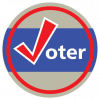Having a gratitude attitude


Hi everyone!
I know how hard organizations work on crafting their fundraising appeals. And yes, I feel the pain of having 7 different managers read the ask and add their comments/edits. (As a friend says: Writing by committee is where good fundraising goes to die.)
Let's talk thank you's: Expert advice is to prepare your campaign thank you first or at least towards the beginning of the process. Yet so often it's the last thing composed.
Why is that? Showing a proper amount of gratitude to donors and supporters is what helps build the relationship, which of course is what fundraising is all about.
So why are so many thank you letters perfunctory, boring and void of any donor love? What advice would you give organizations about how to improve their gratitude attitude?
Comments
-
My mentor in this business said good nonprofits have mastered the ask. The few exceptional nonprofits have mastered the thank.
I have taken that advice to heart throughout my career. We use many levels of stewardship; phone calls, hand written thank you notes from staff, personal visits just to thank the donor, hand written notes from board members. These follow the formal written thank you that we send.
5 -
Love that quote!!!
2 -
@EphraimGopin , I wish your post would generate some more ideas from members.
1 -
Hi Kent, we use most of the ideas that you mentioned and personal phone calls seem to be the best way to express gratitude and learn more. Just this week one of our programs received an $888 donation from someone we hadn't heard of from out of state. The program manager thought it was a mistake or fraud; but we did get the money. He called the donor to thank them and learned that someone in Idaho, where we are, shared a facebook post of one of our international cooking classes with a friend in NY. They were so impressed with the program that they made this donation. Never underestimate the power of building relationships through phone calls!
Also, even though I'm the grant writer, I'm often asked to compose annual appeal letters. I usually pick a theme or quote for a theme for the letter. its a little corny but has worked pretty well. When I write the thank you, I pull from the ask letter to make a strong connection from the ask to the thank you.
5 -
@DianeDemarest I love phone calls too. It is so personal and we can learn so much. If it is someone I'm not already familiar with, I always ask why they picked us for philanthropic support. I have gotten some great stories over the years and learned of connections that we were not aware of in the past.
When someone says "I wish I could do more" that opens a door for me. My response is "many of our donors have made their most significant gift through their will, is that something you would consider?" It's a very soft ask. The phrasing is critically important. By saying "many of our donors" I have created a social norm. The goal is to get the donor to think: people like me do things like that. It's powerful.
My goal when thanking donors is just to thank them and not ask for anything else. If they open the door though........
5 -
Hello All
On the flip side, I've gotten over-the-top thank-you letters for $25 donations. The thank-yous felt odd and out of proportion to the gift. I also use phone calls and try to personalize letters when I know enough about the donor to do that. I also reach out to others in the organization to see who knows donors and can provide a personal thanks. I live in Vermont and once got Ben and Jerry's to donate 250 free ice cream cone coupons, then stuck one of those in with the thank-you letter. That was fun and got a good response. I also arranged for a local, well-known cartoonist to do an appropriate and fun cartoon and put that at the top of the thank-you letter. Just some crazy ideas, but obviously it depends on your donors and organization.
Best to you all.
5 -
Barbara-
I love both of the ideas you mentioned! A little creativity and thoughtfulness go a long way with donors.
I'm ok with over-the-top thanks letters, even for small donations. I believe in treating a $10 donor like a $10,000 donor. If stewarded right, that $10 donor eventually gives a lot more.
3 -
I like the idea of a well-designed, tiered thank-you system that's prompt and geared to do a certain job. With entry level donors, I'd suggest a warm thanks, maybe a call, and a follow-up not too far down the road with some invitation to connect with the organization's work.....some gentle, warm, welcoming "come along." Then moving up the tiers--who knows, quarterly or twice yearly breakfast gathering with organizational leaders for personal updates on work, progress, and challenges. Systems are essential to keep things moving on time and a thoughtful tiered system that meets, greets, and encourages each donor at their entry level...and accelerated level...seems like a good plan.
5 -
I love any discussion about gratitude! Yes, showing thanks to donors is important, but are we showing the same appreciation to one another? A organization that puts gratitude front and center in all things may find it easier to show gratitude to the many donors, volunteers, stakeholders, and other supporters.
4 -
Wait @TrishBachman you want employers to show gratitude to staff??!! 🤯
3 -
Staff will be 😍🤩💃
3 -
And for consultants, we need to remember to thank our clients. I have done several things over the years, but a couple come to my mind. I have a client who has a finance person I work with close; she develops the list of tasks to be completed for submission, the budget, etc. I try to always remember her on International Grant Professionals Day with flowers or a note or some little treat. She doesn't think of herself as a grant pro, but she is an indispensable part of my success with her organization.
Last Christmas, I sent cozy, cute socks to another client. They are off during the holidays, so I made sure to get them there early in the month. Now, this is a client I have known for years, so...
And, if a client has a new grandbaby, I always send a fun board book and encourage them to start their own grandparents' library. Literacy everywhere!! I sometimes send those little cloth books that you put pictures in -- and encourage them to put their own pictures in so their grandchild can "read" about granny and granddad. [Note: Bette Midler co-wrote a book about ducks. If you're gifting a baby boomer, this might be a good one, too!]
Johna Rodgers, GPC
Owner, Principal Consultant | Johna Rodgers Consulting, LLC
johnarodgersgpc@gmail.com |
3 -
Gratitude is not only proper to do; it can be very simple. Sadly, many NPOs are after the funds and do not follow up until they ask again. Taking the time to say Thank You should be automatic. It makes the donor feel valued and more likely to give again and give more significant donations. All of us want to feel connected!
Colleagues, remember, there is a lot of competition. If you do not connect with donors, your competitor will!
4 -
We had a great discussion with @EphraimGopin during his webinar 'Take My Breath Away: Building Relationships One Thank You at a Time'. And in addition to the 13 ways to show gratitude - there were so many great follow up questions (and answers!). If you weren't able to attend and stay for the extended Q&A period - you can catch it all on the recording. Thank you again Ephraim!
#gratitude, #fundraising, #relationships, #thankyou
3














